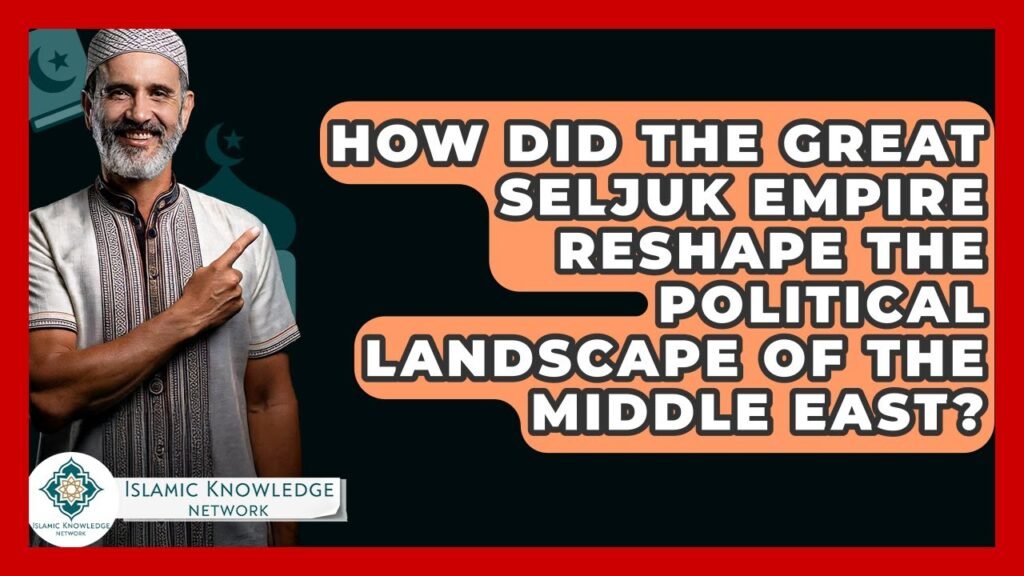You are here to read: How Did the Great Seljuk Empire Change Middle Eastern Politics? – A Thoughtfully Written Guide Offering Spiritual Wisdom and Travel Advice for Every Pilgrim who is going on holy journey of Hajj or Umrah.
The Great Seljuk Empire, flourishing between the 10th and 12th centuries, played a pivotal role in reshaping the political landscape of the Middle East. Emerging from the vast steppes of Central Asia, the Seljuks expanded their dominion across Persia, the Levant, and Anatolia, effectively bridging the gap between East and West. Their adaptive governance and military prowess not only established a formidable empire but also facilitated the spread of Islam, culture, and economic trade across the region.
As the Seljuks consolidated their power, they influenced regional politics, paving the way for the later rise of major players like the Crusaders and the Ottoman Empire. Their administrative reforms and patronage of science and art contributed to a cultural renaissance that would leave a lasting legacy in Islamic history. This period of transformation was characterized by the interplay of various emerging powers and the establishment of new political entities that would continue to shape the Middle Eastern narrative for centuries to come.
For those interested in the historical intricacies of the Middle East, our blog at airlinkhajjandumrah.com offers insightful updates on Hajj and Umrah, illustrating the continuing cultural and spiritual significance of this rich heritage.
How Did the Great Seljuk Empire Change Middle Eastern Politics?
The Great Seljuk Empire, flourishing from the 11th to the 12th centuries, played a pivotal role in reshaping Middle Eastern politics. This vast empire extended from Persia to the Mediterranean, laying the groundwork for future political structures. One of their significant contributions was the establishment of a centralized bureaucracy, which enabled more efficient governance and encouraged trade and cultural exchange. This stability attracted scholars, artists, and traders, fostering a vibrant intellectual environment that would later influence the Renaissance.
Moreover, the Seljuks were instrumental in the Islamic world’s military and political landscape. Their victories against the Byzantine Empire not only expanded territory but also solidified Sunni Islam’s dominance in the region. This shift created a lasting impact on religious and regional identities, influencing subsequent leaders and leading to the emergence of new dynasties. The Seljuk legacy can still be felt today, as the political frameworks they developed became foundational for later empires, including the Ottomans.
At airlinkhajjandumrah.com, we recognize the historical significance of such empires, especially as they relate to the spiritual journeys of Hajj and Umrah. Stay updated with our blog for the latest news that bridges history and today’s pilgrimage insights.
You're at the middle of this awesome post at AirlinkHajjandUmrah.com through: How Did the Great Seljuk Empire Change Middle Eastern Politics?. Keep reading, it gets better!
FAQ on How Did the Great Seljuk Empire Change Middle Eastern Politics?
FAQ 1: What role did the Great Seljuk Empire play in the unification of the Middle East?
The Great Seljuk Empire played a crucial role in unifying various fragmented regions of the Middle East, bringing together diverse cultures and promoting a centralized political structure that fostered stability and administration across vast territories.
FAQ 2: How did the Great Seljuk Empire influence relations between Muslims and Christians?
The Great Seljuk Empire significantly impacted Muslim-Christian relations by controlling key religious sites, leading to increased tensions and conflicts, most notably the Crusades, which reshaped religious and political dynamics in the region.
FAQ 3: In what ways did the Great Seljuk Empire contribute to the development of Islamic governance?
The Empire established a sophisticated bureaucratic system that incorporated Islamic law into governance, promoting advancements in administration, representation, and the integration of various cultural practices within the political framework.
FAQ 4: What were the key political structures established by the Great Seljuk Empire?
The Seljuks established a feudal-like system of governance, where local leaders (emirs) maintained control under the overarching authority of the sultan, facilitating local autonomy while ensuring loyalty to the central government.
FAQ 5: How did the decline of the Great Seljuk Empire affect Middle Eastern political landscapes?
The decline of the Great Seljuk Empire led to power vacuums and increased fragmentation, paving the way for the emergence of regional powers and contributing to a cycle of conflict and territorial disputes that reshaped Middle Eastern politics for centuries.
That wraps up How Did the Great Seljuk Empire Change Middle Eastern Politics?. Thanks for sticking with us till here! Share this: How Did the Great Seljuk Empire Change Middle Eastern Politics? with your friends.
Check our homepage at Air Link Hajj & Umrah for more awesome updates.
Some interesting posts are: 1: Umrah Mubarak, 2: When is Umrah closed 2026?, 3: When does Umrah start after Hajj 2026?
Mushu, an experienced Saudi Arabia traveler and writer, shares insightful tips and spiritual reflections to enhance Hajj and Umrah journeys for fellow pilgrims. He has been to Makkah and Madina from 2016 to 2023 many times and his posts will reflect this.







